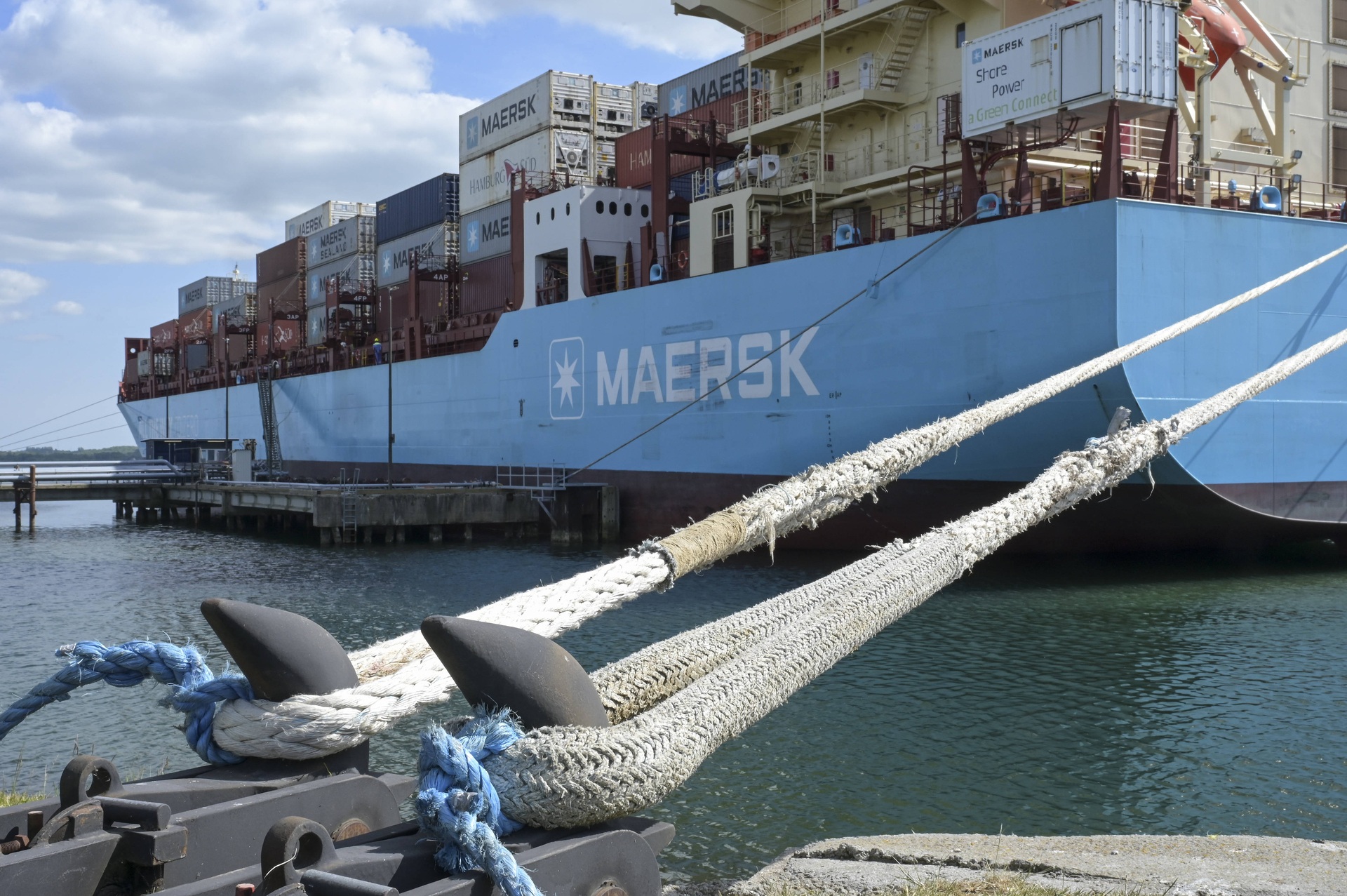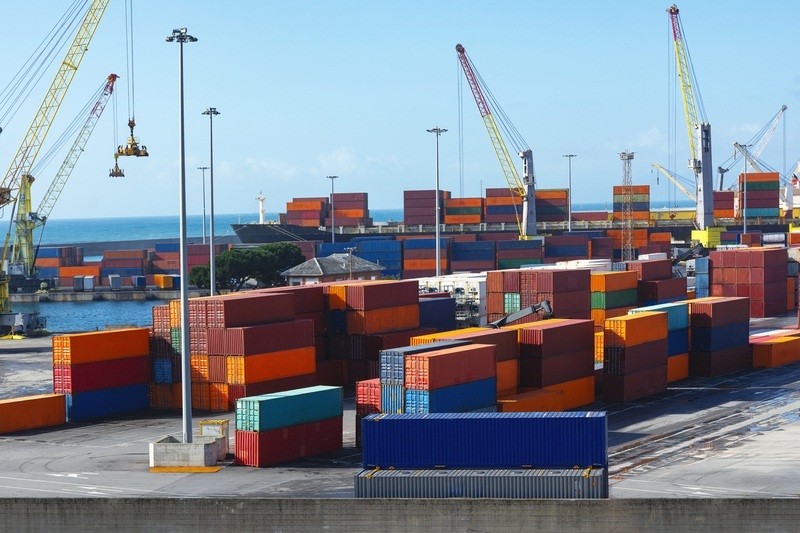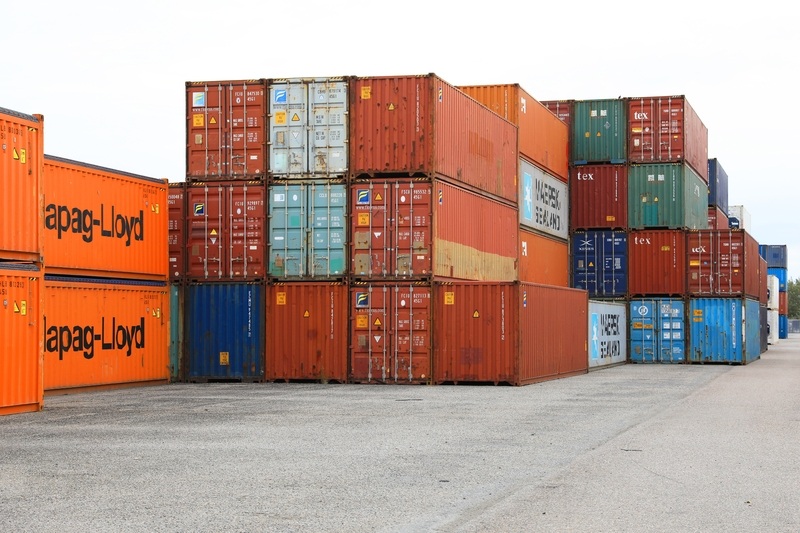Dockworkers across Europe Work Together to Halt Israeli Arms Shipments
Not only the Houthis are disrupting Israel’s maritime supply chain: Growing protests and mobilization by unions across several European ports – from Greece and France to Italy and Belgium – have successfully halted weapon shipments to Israel in recent months. A military shipment was also delayed at a Paris airport recently. “Dockworkers refused to load the containers,” a representative of one of the unions told Shomrim, “we were informed that military equipment was due to be loaded onto a flight to Tel Aviv.” A Shomrim exposé also published in N12 Magazine


Not only the Houthis are disrupting Israel’s maritime supply chain: Growing protests and mobilization by unions across several European ports – from Greece and France to Italy and Belgium – have successfully halted weapon shipments to Israel in recent months. A military shipment was also delayed at a Paris airport recently. “Dockworkers refused to load the containers,” a representative of one of the unions told Shomrim, “we were informed that military equipment was due to be loaded onto a flight to Tel Aviv.” A Shomrim exposé also published in N12 Magazine

Not only the Houthis are disrupting Israel’s maritime supply chain: Growing protests and mobilization by unions across several European ports – from Greece and France to Italy and Belgium – have successfully halted weapon shipments to Israel in recent months. A military shipment was also delayed at a Paris airport recently. “Dockworkers refused to load the containers,” a representative of one of the unions told Shomrim, “we were informed that military equipment was due to be loaded onto a flight to Tel Aviv.” A Shomrim exposé also published in N12 Magazine
A Maersk ship in Denmark. Photo: Reuters

Milan Czerny
August 7, 2025
Summary


Listen to a Dynamic Summary of the Article
Created using NotebookLM AI tool
At Marseille-Fos, one of France's busiest ports, located just 50 kilometers from Marseille in southern France, dock workers rummaged frantically last month through thousands of shipments to find small crates of links, enabling rapid fire of bullets. The workers had received information that the crates would be loaded onto the Contship Era ship bound for Haifa, Israel.
Since the French workers were unsure whether they would locate the pallets with the crates in time, the port’s union coordinated their action with their colleagues across the border in the Genoa port in Italy, where the ship was due to dock on its way to Israel. Should the French workers fail to locate the crates in time, their Italian counterparts would seek to prevent the shipment from reaching its destination, in a show of cross-border coordination against arming Israel as it fights in Gaza.

The French port workers were also joined in the struggle by the French legal organization JURDI, the Association of Jurists for the Respect of International Law, which petitioned a local court on the matter.
The dockers halted the ship for several days at Marseille-Fos, and it eventually was forced to set off for Israel without the crates of bullet links. It is not clear what happened to the crates thereafter, but it appears that they were returned to the sender, Marseille-based company Eurolinks. “Port workers refused to load the crates,” Alfonso Dorado, a lawyer for JURDI, told Shomrim. “This is our small victory.”
As international audiences grow more concerned about the humanitarian crisis in Gaza and are pushing their governments to do more to pressure Israel, they are also taking grassroots actions against the war. Beyond France, union workers in Italy, Greece, Belgium, Morocco, and Sweden have announced that they will act using the same method to halt military shipments bound for Israel. Worker-led protests, along with arms embargoes from some countries and the risk of Houthi attacks disrupting Asian transport routes, are putting heavy pressure on Israel’s already strained supply chain. Israel’s arms industry is dependent on a complex supply chain, and despite the country’s push towards self-reliance in production, any disruption to the delivery of small parts can lead to prolonged delays, potentially carrying strategic consequences.
Dr. Eran Shamir-Borer, the director of the Center for National Security and Democracy at the Israel Democracy Institute warned that there could be far-reaching implications to the unions’ campaign: “While Israel is keen to downplay the importance of these protests, if the security services cannot get their hands on something very specific – and sometimes a tiny component they need can only be sourced overseas – this means they won’t have it when they need it.”
“This leads to economic and operational ramifications,” he said. “Maybe they will have to start manufacturing the specific component in Israel; maybe that will be too expensive, cost too much, or will not be the same quality.”

“We are continuously examining which ports we dock at, in order to ensure the most efficient operational structure," said to Shomrim a spokesman for Maersk
From Greece, France and Belgium to Sweden and Spain
Workers at Marseille-Fos began delaying shipments to Israel in April this year, when they examined a container suspected of carrying F-35 fighter jet components bound for Israel. The fate of that shipment is unknown, but, following the incident, global maritime shipping giant Maersk, which operated the ship that was due to collect the cargo, announced that it would no longer use Marseille-Fos on some of its shipping lines.
A spokesperson for Maersk confirmed to Shomrim that the port had been removed from some of its lines, but denied that the decision had anything to do with the incident in April. “We are continuously examining which ports we dock at, in order to ensure the most efficient operational structure. The recent changes to the lines are intended to improve reliability while maintaining adequate coverage in the region,” the spokesman said.
Other international ports have followed suit in growing numbers. In July, ENEDEP, a union representing dockworkers at Greece’s Piraeus port, halted a shipment of military-grade steel bound for Israel. The union said in a statement that hundreds of port workers took part in a demonstration against shipments to Israel.
In Belgium, four NGOs called for halting a shipment of parts that they claimed were intended for a factory that manufactures components for IDF’s Merkava tanks. The components were supposed to transit through the port of Antwerp, Europe’s second largest, before reaching Israel.
In January, 68 percent of the members of the Swedish dockworkers’ union voted in favor of a boycott against any military shipment to or from Israel.
In addition to the bottom-up mobilization by workers’ unions, several states have also taken matters into their own hands, imposing restrictions on the transportation of arms to Israel via their territory. Two weeks ago, the Hague Group – a newly established coalition of nations from the Global South whose members include Belize, Bolivia, Chile, Cuba, Colombia, Honduras, Malaysia, Namibia, Senegal and South Africa – announced a full arms embargo against Israel, vowing to block any ship carrying arms to Israel from docking at their ports. Even before the Hague Group, after October 7, 2023, Spain and Turkey adopted similar measures to limit the export and transport of arms to Israel.

“While Israel is keen to downplay the importance of these protests, if the security services cannot get their hands on something very specific, this means they won’t have it when they need it,” says Dr. Eran Shamir-Borer
Disruptions in the air
Blocking weapons shipments to Israel isn’t limited to sea routes. Workers at Charles de Gaulle Airport in Paris recently discovered that military-grade steel was due to be delivered via their airport to Israel’s defense firm Elbit. The shipment was first delayed after Israel closed its airspace amidst the war between Israel and Iran in June. Several unions across Europe – including truck drivers and employees at logistical centers – all worked together to prevent the steel from reaching its destination.
“We were informed that military equipment was due to be loaded onto a flight to Tel Aviv,” the airport workers’ union said in a statement in July. “We refuse to take part, directly or indirectly, in any logistical activity that could contribute to the ongoing crimes in Gaza.”
Taïeb Houira, a senior member of one of the unions involved, told Shomrim that sending military equipment via a civilian airport is unprecedented. “Our job is to bring peace, to help passengers travel – but not to participate in a war,” he said. He added that his union mobilized its large network of workers and received precise information about the shipment, its exact nature and location, which allowed the unions to track it from its source in Sweden to its final destination in Israel.
In the end, the unions failed to prevent the shipment from leaving for Israel, which it eventually did in early July – although how exactly that happened is unclear. The unions accuse El Al of concealing the shipment among other cargo, something that the airline denies. The unions plan to launch further legal actions which Houira says will help prevent similar cases in the future.

Israel tries to downplay the disruptions
Israel has so far tried to downplay the importance of the delays and the disruptions to the shipments.

The unions’ actions will only have a minimal impact on Israel’s national security needs, according to a source familiar with the matter. “This is not a new challenge,” the source said. “Most of the key actors in the Israeli defense industry have a strong and diverse supply chain, which takes into account the complexity of relying on a single supplier. Israel has been dealing with complex supply procedures for years. It’s just the reality we face.”
But not everyone agrees with this approach, which, to a great extent, reflects the official Israeli position. Shamir-Borer confirmed that attempts to impose an arms embargo on Israel are not a new phenomenon, but stressed that, “in the context of the current war, everything is on steroids.” He said that previous issues with the supply chain were a lot smaller in scope, less systematic and focused more on public pressure than legal proceedings. They cannot, he added, be compared to the current campaigns against arms shipments to Israel.
The Foreign Ministry responded: "The issue is recognized and addressed with the relevant countries."













